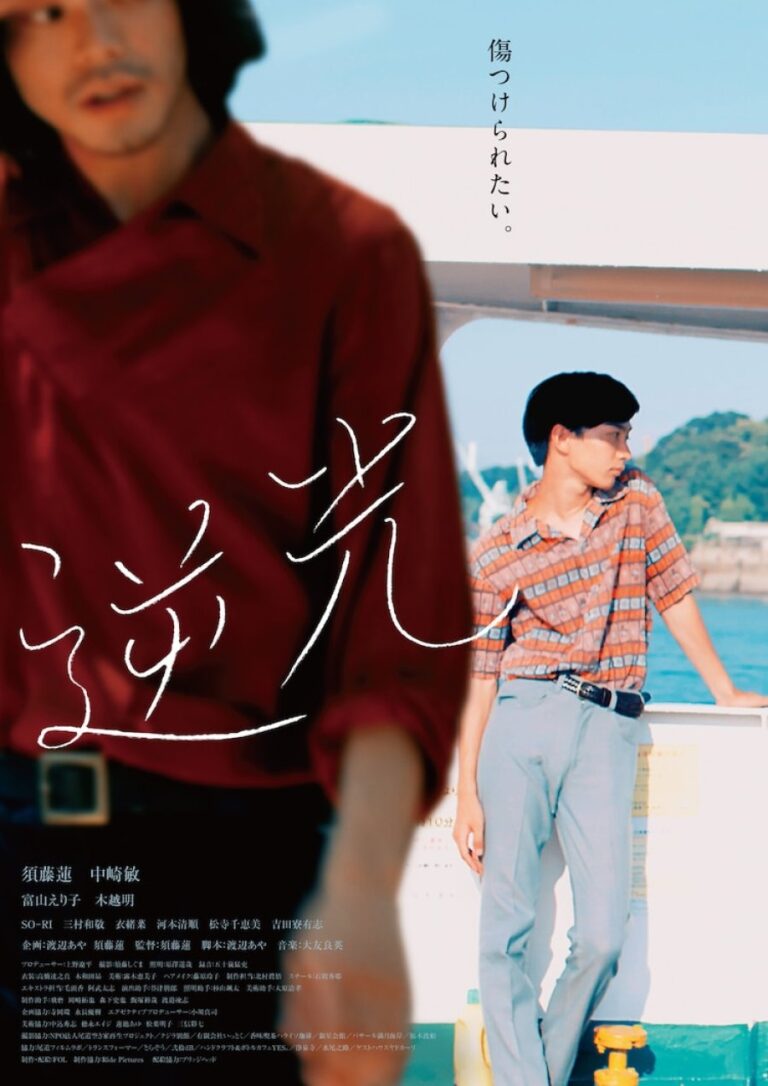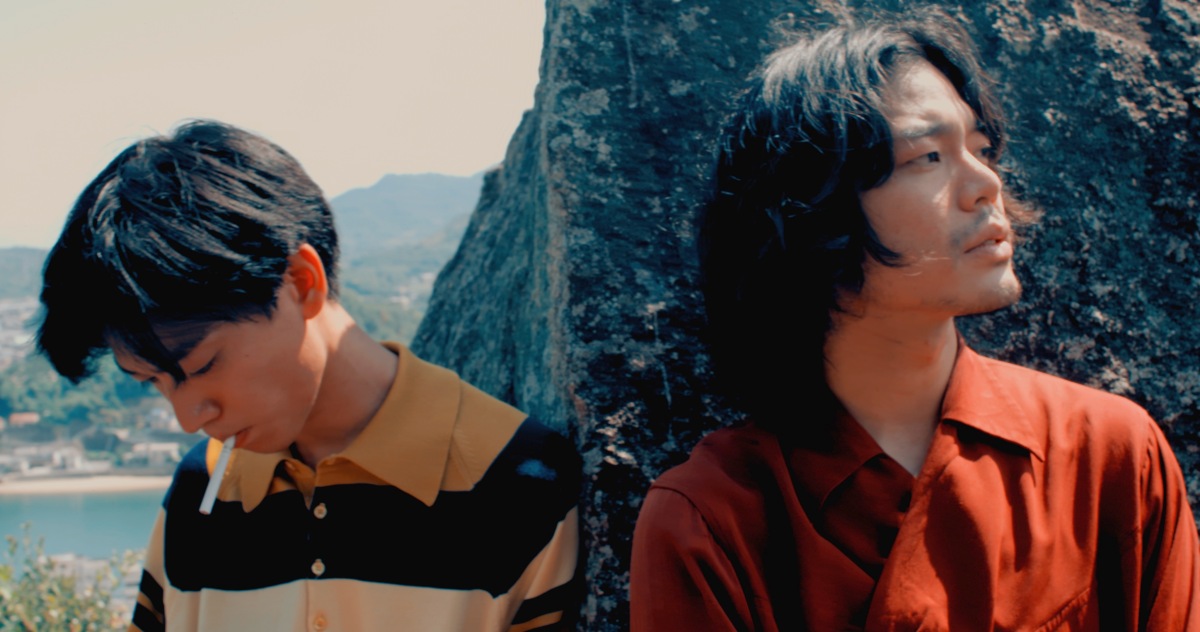
Backlight — directed by Ren Sudo — is currently part of the 2023 Chicago Japan Film Collective, that showcases Japan’s finest programmes in the windy city, focusing on the work created by women, the LGBTQ community, and minority filmmakers.
The film very delicately introduces the topic of a homosexual love during youth, in the Seventies. Director Ren Sudo also plays the lead character Akira, a 22 year old who has feelings for his senior at university, Yoshioka (Haya Nakazaki).
Akira decides to take his friend to his hometown of Onomichi during the summer break. Here he introduces him to his former classmate Fumie (Eriko Tomiyama) and the flakey Miiko (Akira Kikoshi). A tranquil and slouchy holiday will turn out to be a turning point for self-discovery.
Backlight (逆光, Gyakko), conveys a sense of nostalgia from the first opening shots, where several vintage black and white photos show the Senkōji Ropeway, which is where Akira will take his friend Yoshioka as a first visiting site. The cable car becomes a parable for the surmountable enterprise of confronting feelings of love and identity.

Akira has moved to the capital and somehow feels ashamed of his provincial background, and at the same time he is dealing with his suppressed attraction for his friend. But the two university students are not thriving in Tokyo’s college, they are both ryūnen: they can’t graduate because they haven’t got enough credits, basically they are beyond the allotted time to attain a degree.
Akira and Yoshioka are stuck in a limbo, trying to figure out their lives. While doing so they discuss the books that inspire them, written by the influential Japanese writer Yukio Mishima. The author is a tacit protagonist of this story, as Akira mentions some of his most meaningful works such as Kinkakuji, Confessions Of A Mask, The Sailor Who Fell From Grace With The Sea, Lessons In Immortality.
When the four youngsters stumble upon a summer festival a stranger mentions Mishima’s College Of Unchasteness, defining it as a “silly prose for women” and analysing it through a misogynistic angle. The group of people who feast and intellectualise every possible phenomena further discuss, in a cold and detached manner, the nuclear armament in the international political power game. This causes Miiko to be distraught, since she lost her loved ones during the bombings of Hiroshima and Nagasaki. This circumstance enhances the juxtaposition between an exasperated cogitation on current affairs — by those who are disenchanted city dwellers on holiday in Honshu’s port city — and the more profound and visceral manner of perceiving these issues — of the apparently basic, rural people.
It is a subtle confrontation between mind and heart, where the former tends to strategise on life.
This political approach to existence spins off into the way love is envisioned as an infringement of the status quo. This is epitomised by the secretiveness of the rapprochement between Akira and Yoshioka. It is fully exemplified in the words of the nationalist writer who won a Novel Prize in Literature in 1968: “But a thing called love, it’s not really love unless it collides head on with society, If love is not considered harmful to society in its time, it does not qualify as love. Only then does love contribute to culture.”

Mishima’s words intertwine with the unexpectedness of life: even though Akira has found the courage to embrace what society labels as an unconventional love, he confronts how sentimental affairs don’t always turn out as expected. Heartbreak turns out to be a universal circumstance, no matter who your love is addressed to, be it the opposite sex or the same sex.
The lyrics of the song chanted by Miiko on the seashore, poetically condense this wistful sensation towards romances that drift away from us: “What were those days? What was that heart throbbing? They were just a dream. Nothing more but a dream. Almost heartbreaking. You and I, just the way we are standing here.” What is left is, perhaps, a defeat of that cerebral and politicised scheme, since no one is immune to love loss.
Final Grade: B

